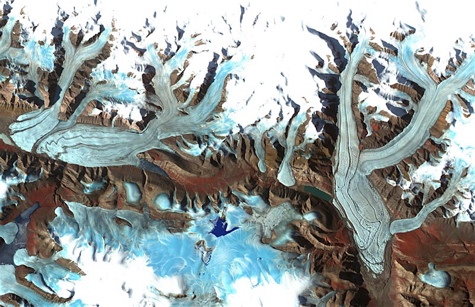JPL Marks International Polar Year
The advent of the Space Age and recent
technological advancements have given today’s scientists new tools earlier
explorers could only have dreamed of. The time has come to put those tools to
work in a new study of the polar regions.
In the past 125 years, scientists have coordinated three international expeditions to study the poles: in 1882, 1932 and 1957. The 1882-83 polar year led to the establishment of a series of Arctic weather stations. The 1932-33 International Polar Year expanded studies of the Arctic’s meteorology and upper atmosphere, and included the second Antarctic expedition by Admiral Richard E. Byrd, conducted using both aircraft and surface observations. In 1957-58, the International Geophysical Year included major aircraft and surface research efforts in Antarctica, and saw the launch of the first artificial satellites.
The advent of the Space Age and recent technological advancements have given today’s scientists new tools these earlier explorers could only have dreamed of. The time had come to put those tools to work in a new study of the polar regions. This was the genesis of the latest International Polar Year (IPY). It began on March 1 of this year and will continue through March 1, 2009, allowing researchers to conduct two annual observing cycles in each polar region.
So why study the poles so intently? Scientists want to understand the large-scale environmental changes that are occurring in Earth’s polar regions because they have major societal and economic impacts. In addition, studying them helps advance new scientific frontiers, such as understanding the role of the Antarctic and Greenland ice sheets in sea level rise.
Projects like this break new ground in every direction. I worked with one of the first “ice geologists” just after he returned from the Antarctic in 1958. When I told him I’d never heard of an “ice geologist” - he replied, “Neither had I - till we started the project and invented the term”
Posted: Sat - March 24, 2007 at 09:05 AM
